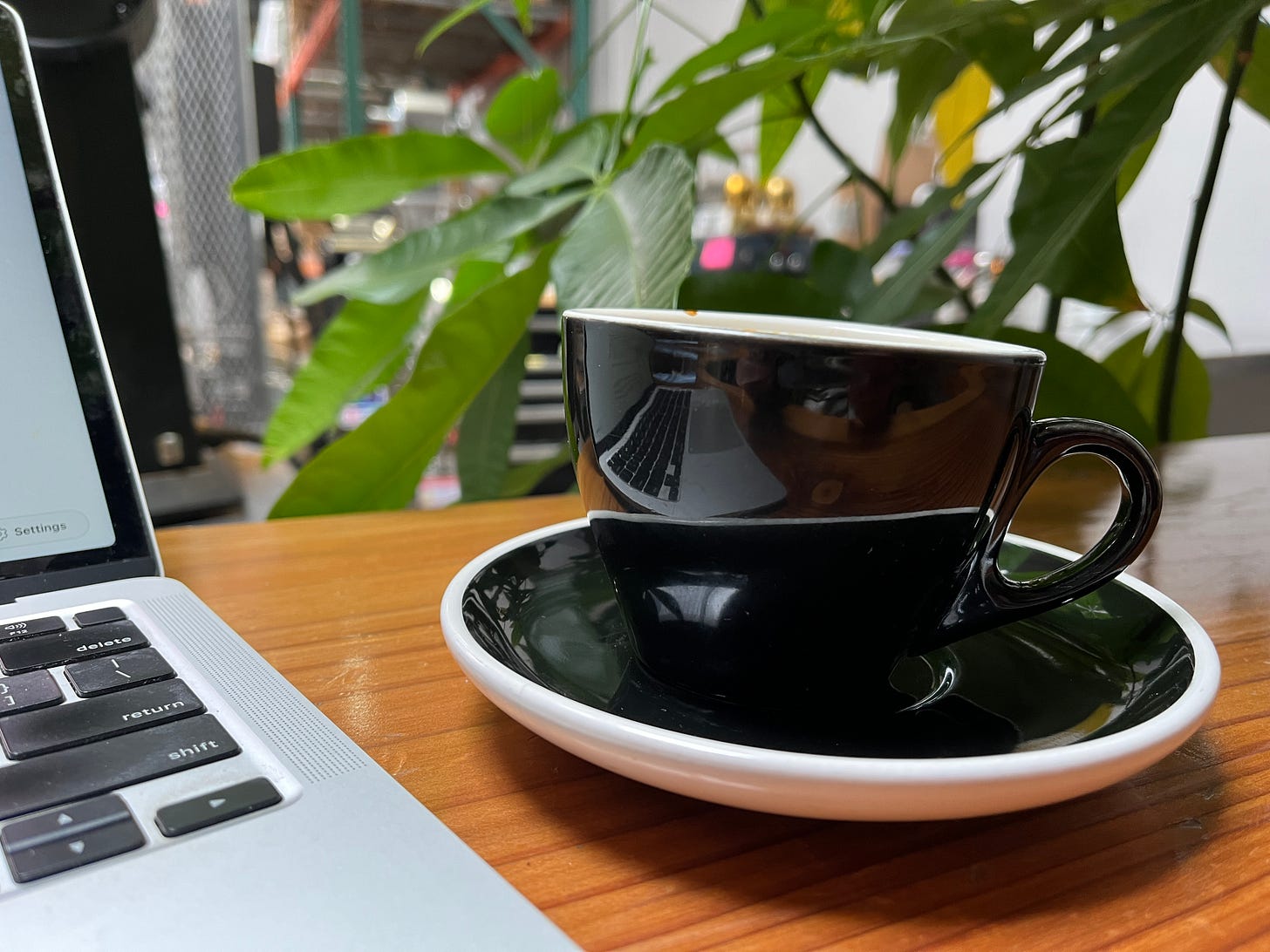Artisanal Simulacra: A Better Kind of Hyperreality
During my recent chat with Scott Newman on the 27 Rouge podcast, I rambled my way into a concept that now I can’t get out of my head. Artisanal simulacra.
Basically everything we encounter in modern life is simulacra: copies of things that no longer have an original. Living in a world saturated with simulacra amounts to living in hyperreality, where it’s nearly impossible to distinguish reality from simulated reality.
These ideas of simulacra and hyperreality, developed by philosopher Jean Baudrillard, are easy to apply to places like the suburbs. It’s all fast-food chains, box stores, strip malls, and oversized cars. The whole world of suburbia is far removed from “real” things like homegrown food and walks in nature.
City life, you’d think, would be even further removed from basic realty and original things. And yet cities often succeed in stripping away certain layers of simulation and simulacra. In cities, you often find a culture that thrives on farm-to-fork restaurants, independent music, mom-and-pop corner stores, galleries displaying local artists, small pottery studios, etc. In a city, people spend more time walking and biking rather than driving in a car. They spend less time watching TV and more time at a third places (coffee shops, bars, parks) chatting with other people in their community.
For the most part, all of this is still simulacra. It’s just artisanal simulacra.
Employing this phrase helps to clarify—at last in my mind—why exactly suburbia is so terrible. While suburban and urban living are both “fake” in that they’re both part of the hyperreality of modernity, suburban living is the most egregiously phony. The fakeness of suburbia is defined by corporate simulacra, while the fakeness of city living at least aspires toward artisanal simulacra.
Really, it’s hard to overstate how bland the day-to-day life is for the average American living in suburbia. Some suburbanites, I’m sure, live extraordinary lives. No doubt about that. But I’m talking about the average guy right now pulling into the McDonald’s drive-thu in his Ford F-150 to get an Egg McMuffin. He’s wearing Nikes and a baseball hat. His mind is full of excitement over his upcoming family trip to Disneyland.
And get this! His wife just called to say that she renewed their Costco membership. His life is complete.
Nothing is particularly wrong with this life. It’s fine, really. It’s just fucking bland.
The fix isn’t to try to escape the modern world, which is simulacra all the way down. Rather, the fix is to lean into all things artisanal. Sure, get yourself an Egg McMuffin, but get it from the local bakery and remove the “Mc.” Tastes much better, right? You haven’t escaped the matrix of hyperreal modernity (you can’t), but at least you’ve personalized the experience.
For more on this and related topics, check out my full discussion on 27 Rouge:



I think your observation is on point. I just moved from Los Angeles to a smaller, mellower, suburban South Carolina and I see the complete fake dullness. I'm fortunate to have picked a place with a lot of local culture and history so there's a decent amount of stuff you would find in the bigger cities real close, but the fakeness of everything can be oppressive, especially returning from a recent trip to Europe. I've come to the same conclusion that you have to embrace the artisanal fakeness. I try to eat at local places and make my own culture by hosting dinners, parties, and patronizing interesting stores.
not very much help, but i think whenever the idea of 'walks in nature' gets invented (e.g., by plato, by wordsworth, by everyone (now)) it's exactly then that nature has become a representation of itself. but perhaps nature being a representation of itself is better than a representation being a representation of itself.